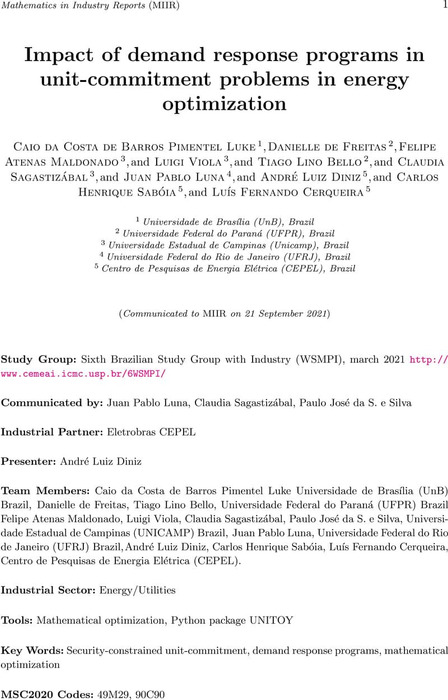Abstract
Demand response is currently being tested by the Brazilian independent system operator, ONS, and by the trading chamber, CCEE. The program considers the reduction of consumption of some registered clients, as an alternative to dispatching thermal power plants according to merit order. The DESSEM computational tool, developed by CEPEL, is currently run by the ONS to define the next-day dispatch for the whole country. The results obtained using an academic version of DESSEM are used to benchmark and compare DESSEM's performance to relocate the load of demand offered by the operator to different clients under different configurations of the power system. Pros and cons are analyzed for different mathematical formulations, particularly regarding their impact on prices, operating costs, and computational times. Special attention is paid to determining the robustness of the considered models for a variety of optimality requirements for solving the unit-commitment problem.
Content



![Author ORCID: We display the ORCID iD icon alongside authors names on our website to acknowledge that the ORCiD has been authenticated when entered by the user. To view the users ORCiD record click the icon. [opens in a new tab]](https://www.cambridge.org/engage/assets/public/miir/logo/orcid.png)

